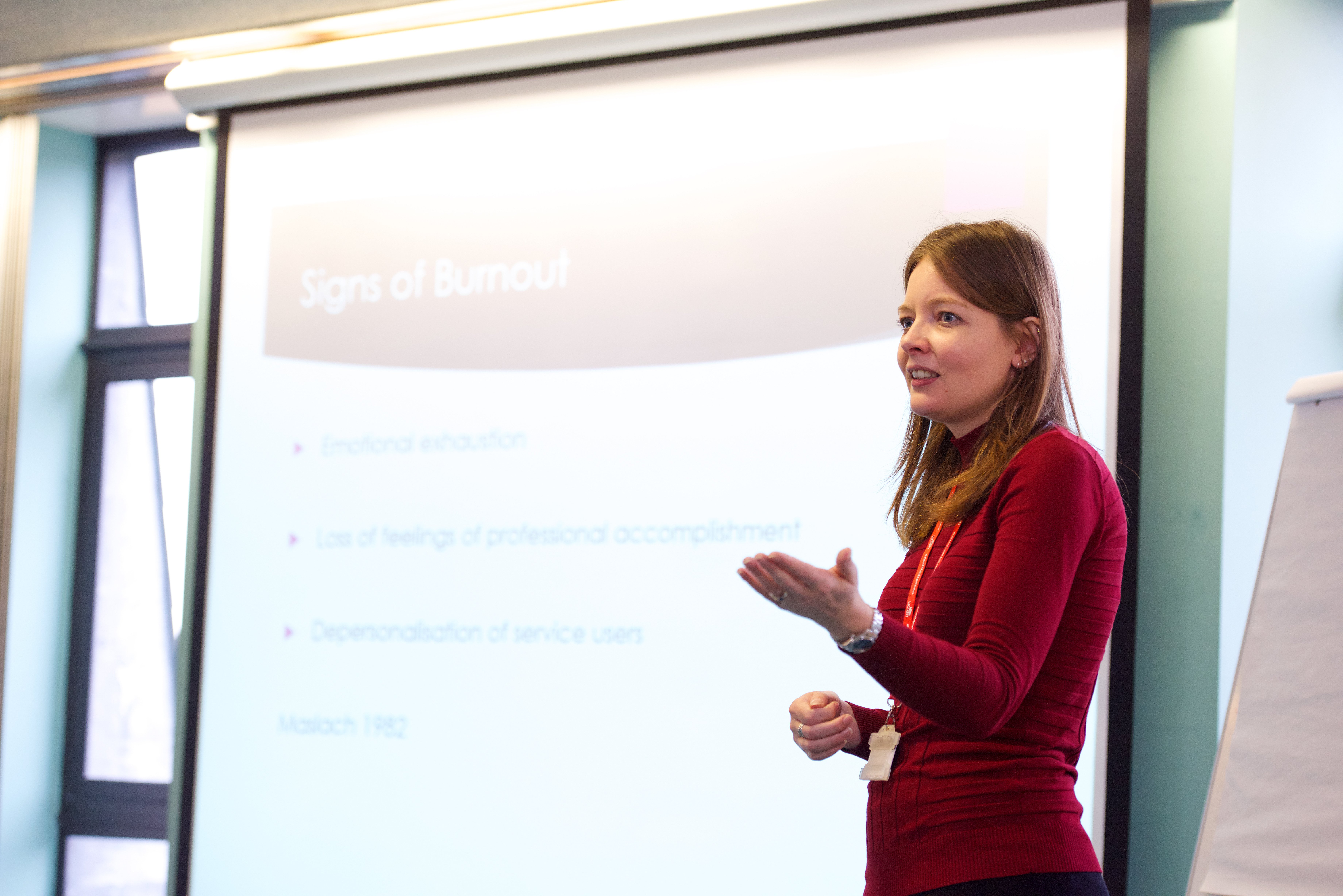Benefit from the insight of our experienced academics through regular discussion, feedback, assessments and live webinars (recorded so they can be watched back at any time).

MA Social Policy
Help drive change in social inequalities
Course details
Delivery: online, part-time
Duration: two years
Start dates: Future start dates are to be confirmed.
Fees: £8,549 (flexible payment plans available)
Course overview
Our online MA in Social Policy will help you understand and analyse some of the most pressing issues faced by the world today.
You’ll explore how cultural, demographic, economic, governmental, and technological changes shape social policy across the globe, and develop the skills needed to carry out social research informed by debates on methodology, epistemology, ethics, and politics.
Why study with us?
Experienced team
Professional growth
Receive tailored support and resources to sharpen your independent learning, giving you the skills to further your own development long after graduation.
Thrive in the field
Explore contemporary issues with modules that will provide you with a framework of knowledge and the analytical skills needed to thrive in this field.
Learning outcomes
This programme has been carefully designed to provide higher-level critical thinking, awareness and theoretical knowledge in the study of poverty and social inequality as social phenomena.
Upon completing the MA in Social Policy, you’ll be able to:
-
Demonstrate an advanced knowledge of the challenges involved in undertaking social policy research
-
Identify, examine, and make use of research and other appropriate material for the analysis of social policy issues
-
Use the subject specific and cognitive skills you’ll develop in the critical analysis of social policy issues
-
Plan, conduct, and report on your own social policy research projects
Watch your course overview
Watch our webinar with Course Leader Jonathan Pratt to find out about the course in more detail.
Have a question?
Module overview
During this introductory module, you’ll be introduced to several concepts, techniques, and theories employed in developing social policy systems and analysis. You’ll learn how to apply this knowledge to specific social policy issues, and will also dedicate time to researching the various dilemmas and challenges faced by the welfare state.
This module will allow you to develop an in-depth understanding of the contexts within which studies and debates on poverty and social inequality have been conducted.
You’ll analyse major investigations into poverty and learn how to identify elements of continuity and change in the study of poverty and social inequality as social phenomena.
The aim of this module is to help you expand your knowledge of this field by exploring the dynamics of social policy developments from an international point of view.
You’ll be encouraged to critically evaluate current international social policy trends and issues by drawing upon case studies and a range of theoretical contributions to social policy analysis.
The studies you’ll take on will provide an overview of crucial issues and debates associated with the production and evaluation of research for practice in social care. You can look forward to extending your own knowledge and understanding of qualitative and quantitative research processes whilst developing your capacity to act as an independent and critical thinker.
With this final module, you’ll have the opportunity to undertake an in-depth, critical exploration and analysis of an area you are interested in within this field.
Your dissertation can be based on the area of specialisation you hope to enter following graduation, or even a challenge that’s present or relevant to your current place of work.
Examples of previous dissertation topics for on-campus MA Social Policy students include:
-
The social impact of the Second World War and the creation of the 'classic' Welfare State
-
Is the introduction of Universal Credit causing a decline in mental health?
-
Child Protection in England and India: Experience from the last three decades
-
Crumbs from the table? The social legacy of the ‘Right to Buy'
Entry requirements
-
You must hold at least a 2:2 degree in Social Policy or a related discipline such as Economics, Health Studies, History, Politics, or Sociology. We’ll also consider your application if you have an honours degree classification of 2:2 or above in other disciplines.
-
We may ask you to attend an online, 45-minute interview to discuss your background and interest in the course.
-
You can also explore using our accreditation of prior learning (APL) to claim credits that you can put towards your degree, based on the experience you currently hold.
-
If you don’t speak English as a first language you will need to hold a minimum IELTS score of 6.5 or an accepted equivalent.
Unsure if you have the right qualifications or experience? Don’t worry – we know it’s impossible to measure everyone’s capabilities in the same way.

Hear from a student
"I'm a Leadership and Management Training Consultant. I chose Social Policy because I deliver classes with mature learners on various things like legislation, welfare policy, the Mental Capacity Act, and how housing is affecting our people, community and society at large. This course was a really good opportunity for me to broaden my knowledge."
Nonye Otuonye, MA Social Policy student
Want to learn more?
Your academics

Dr Jonathan Pratt, Course Leader
Jonathan is a Senior Lecturer in Social Policy and a Fellow of the Higher Education Academy. He holds expertise in the history, politics, and theory of social welfare development; comparative social welfare; and the impact of ideology on the organisation and delivery of welfare services.
View profile
Dr Steve Cunningham, Module Leader
Steve is a Senior Lecturer in Social Policy and the Course Leader for our on-campus BA (Hons) Social Policy and Sociology programme. His areas of research are welfare history; poverty and social security; the sociology of welfare; asylum and immigration policy; child labour; and children’s activism.
View profile
Dr Stuart Cameron, Module Leader
Stuart is a Senior Lecturer in Social Policy and the Course Leader for our on-campus Doctor of Professional Practice Community and Social Care: Policy and Practice programme. His research interests consist of education policy; undergraduate employment; welfare history; social theory; and the sociology of childhood.
View profile
Dr Mary Drummond, Module Leader
Mary is a Lecturer in Social Policy as well as an Academic Adviser and Dissertation Tutor to on-campus BA Community and Social Care: Policy and Practice students. Her areas of expertise include social housing; urban development; poverty and welfare conditionality; social theory; and critical realism.
View profileHow we teach
We offer an interactive mix of weekly webinars, forums, and learning activities to keep you engaged and challenged during your studies with us. However, you’ll also be given the freedom and flexibility to access these resources at your own time, to best fit your schedule.
In addition, we’ll provide guidance on how to identify, locate, and use the online material available in the Library. Comprehensive bibliographies are provided for each module, as are guidelines for when you’ll be expected to produce essays, projects, and your dissertation.
How you're assessed
Throughout the programme there will be a combination of formative and summative assessments. There are no exams.
Formative assessments will typically involve tutor feedback on your presentations and other projects. Summative assessments will typically take place through essays and assessed coursework – your dissertation being one example.
Careers and opportunities
Upon completing the course and earning your degree, you’ll have the expertise needed to establish a successful career in social welfare provision and public service.
The self-direction and time management skills you can expect to gain will also make you a strong candidate for a variety of roles, particularly at a managerial level.
Some of the positions you could explore include:
-
Charity officer
-
Civil service administrator
-
Health service manager
-
Policy officer
-
Social researcher
Your degree also opens you up to the prospect of pursuing a PhD; in many countries an MA is an essential requirement for study at doctoral level.
As mentioned in the module overview section above, your dissertation gives you with the opportunity – after obtaining ethical approval – to conduct an in-depth research project in your intellectual and professional specialist area of choice.
Check out our MA Social Policy careers page for more information on potential career paths open to you.
More resources
See all resources
Key skills to succeed in social policy
Gain insight into the key skills you need to succeed in a social policy career, and discover how an...
Read the story
Social policy and economic policy: What’s the difference?
Discover the differences between the two key policies, as well as real-world examples of the impact...
Read the story
How do different countries address social reform?
Discover how different countries tackle social reform in this insightful blog post. Explore case...
Read the story
Hear from a student
“From the beginning it’s been clear that UCLan has a really effective system for supporting online students.”
- Sophie Liebe-Kreutzner, MSc in Human Resource Management

